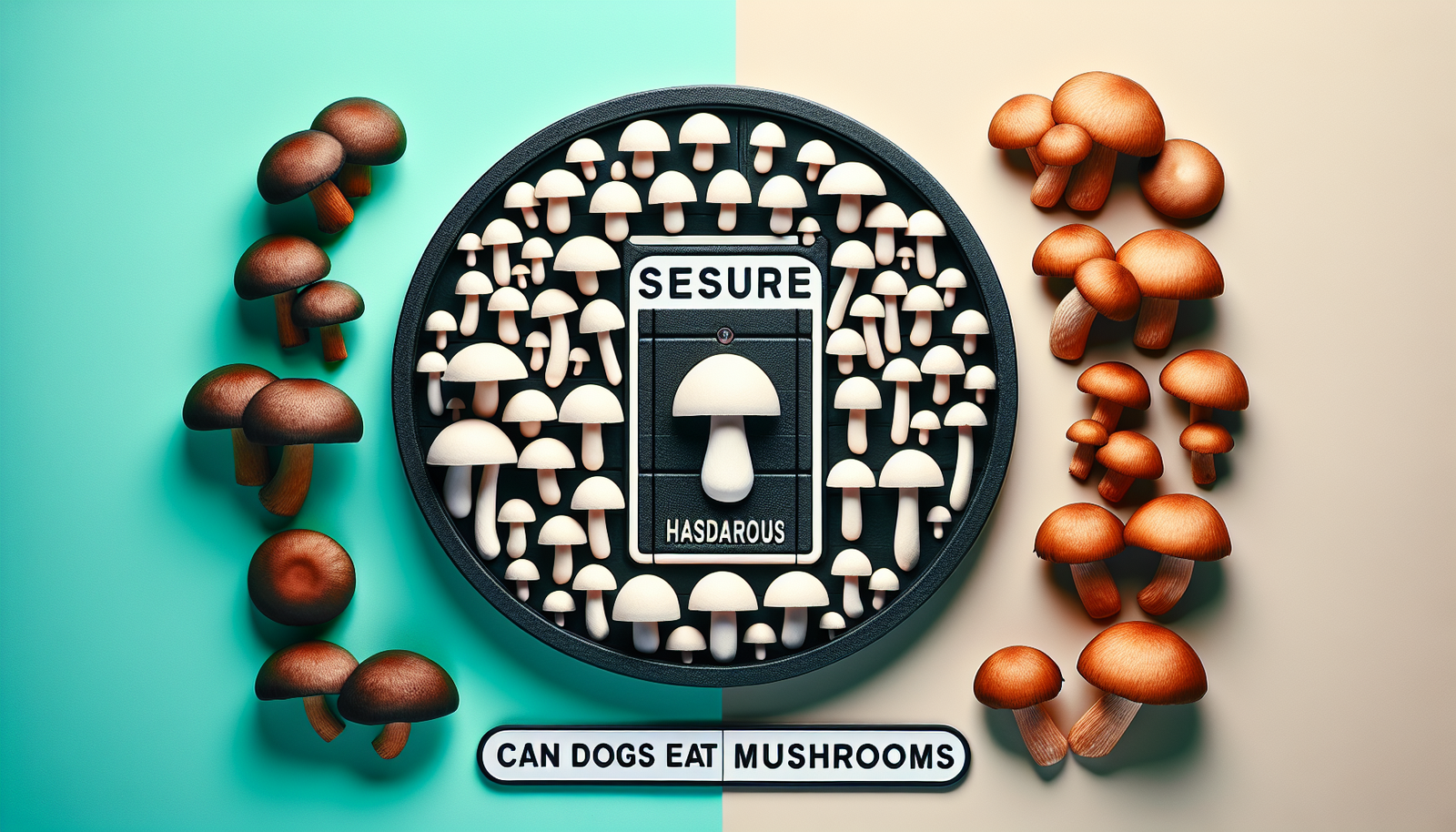If you’ve ever wondered whether it’s safe to share your mushroom-filled meal with your furry friend, you’re not alone. Many dog owners have questioned whether dogs can eat mushrooms. In this article, we will explore the topic to help you understand the risks and benefits associated with feeding mushrooms to your beloved canine companion. So, next time you’re about to toss a sautéed mushroom their way, read on to make an informed decision that prioritizes your pup’s well-being.
Can Dogs Eat Mushrooms
If you’re a dog owner, you may have wondered whether it is safe for your furry friend to indulge in mushrooms. Mushrooms come in various shapes, sizes, and flavors, but not all of them are suitable for canine consumption. In this article, we will explore the types of mushrooms and discuss their potential dangers to dogs. We will also cover the symptoms of mushroom toxicity, immediate action steps to take, treatment options, and ways to prevent mushroom poisoning. Additionally, we’ll shed light on safe mushrooms for dogs and the potential benefits they can provide. So, let’s dive in and find out if dogs can eat mushrooms safely.
Types of Mushrooms
Firstly, it’s important to note that mushrooms are a diverse group of fungi, and not all of them are safe for your canine companion. There are numerous species of mushrooms, some of which can be found in the wild, while others are cultivated for culinary purposes. It’s crucial to understand that while certain types of mushrooms are harmless and even beneficial for dogs, others are toxic and can pose significant health risks.
Toxic Mushrooms for Dogs
When it comes to mushroom toxicity in dogs, species such as Amanita, Galerina, and Lepiota are of particular concern. These mushrooms contain toxins that can wreak havoc on a canine’s system if ingested. The exact composition and concentration of toxins vary among different mushroom types, but some common toxins found in these species include amatoxins, phallotoxins, and orellanine.
Dangerous Effects of Mushroom Poisoning
If a dog consumes toxic mushrooms, it can have serious detrimental effects on their health. Mushroom poisoning can lead to symptoms ranging from gastrointestinal upset to organ failure and even death, depending on the toxins involved. Toxic mushrooms primarily affect the liver, kidneys, and central nervous system. In severe cases, poisoning can result in coma, seizures, and respiratory distress.
Symptoms of Mushroom Toxicity
Recognizing the symptoms of mushroom toxicity is crucial for early intervention and prompt veterinary care. The signs can vary depending on the specific toxins and the amount ingested. Common symptoms include gastrointestinal issues like vomiting, diarrhea, and abdominal pain. Additionally, dogs may show signs of weakness, lethargy, loss of coordination, excessive drooling, jaundice, and changes in their behavior or mentation.
Immediate Actions to Take
If you suspect your dog has ingested toxic mushrooms, it is crucial to take immediate action. Firstly, remove any remaining mushrooms from your dog’s reach to prevent further ingestion. Secondly, contact your veterinarian or a pet poison helpline for guidance. It’s helpful to provide them with information about the mushroom species, if possible, to aid in proper diagnosis and treatment. Time is of the essence, so follow their instructions promptly.
Treatment for Mushroom Poisoning
Treatment for mushroom poisoning may involve various approaches, depending on the severity of the situation. In some cases, induced vomiting or the administration of activated charcoal might be recommended to remove toxins from the dog’s system. Supportive care, such as intravenous fluids, medications to manage symptoms, and liver or kidney support, may also be necessary. It’s vital to consult a veterinarian, who will determine the most appropriate course of action based on the dog’s condition.
Preventing Mushroom Poisoning
Prevention is always better than cure, so it’s important to take steps to avoid mushroom poisoning in dogs. If you live in an area where toxic wild mushrooms are prevalent, it’s advised to keep a close eye on your dog during walks and prevent them from consuming unknown fungi. Regularly inspect your yard for any wild mushrooms and promptly remove them. Educating yourself about the local mushroom species and their toxicity levels can also be valuable for preventing accidental consumption.
Safe Mushrooms for Dogs
While toxic mushrooms pose a significant threat to dogs, there are several safe and even beneficial mushrooms that can be included in their diet. Some common safe mushroom varieties for dogs include white button mushrooms, shiitake mushrooms, and portobello mushrooms. These mushrooms can offer nutritional benefits, such as vitamins, minerals, and antioxidants. However, it is crucial to cook the mushrooms thoroughly before giving them to your furry friend to ensure better digestion and minimize any potential risks.
Benefits of Mushrooms for Dogs
Safe mushrooms can provide various health benefits to dogs when consumed in moderation. Mushrooms contain nutrients like protein, fiber, B vitamins, and antioxidants, all of which contribute to a balanced diet. The vitamins and minerals found in mushrooms can promote healthy skin and coat, boost immune function, support cardiovascular health, and even have anti-inflammatory effects. It’s important to note that mushrooms should not make up a significant portion of a dog’s diet but can be offered as an occasional treat or addition to their regular meals.
Conclusion
In conclusion, while certain mushrooms can be perfectly safe for dogs and even offer nutritional benefits, it is crucial to exercise caution. Toxic mushrooms pose a significant risk to canine health and can cause severe symptoms or even be fatal if ingested. It’s essential for dog owners to be familiar with the types of mushrooms that are toxic to their pets and take appropriate measures to prevent mushroom poisoning. If you suspect your dog has consumed toxic mushrooms, contact a veterinarian immediately for guidance. By being knowledgeable about mushrooms and their potential effects, you can ensure the well-being and safety of your furry friend.

